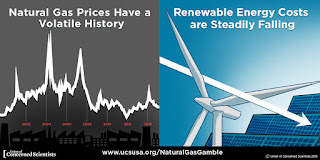As many know already, climate legislation in this country is difficult to pass for multiple reasons. One reason has been concerns over a policy’s economic impact; a concern not without merit. That is why the Clean Power Plan kept these concerns in mind, combining a need for strong emissions controls with economic consideration. Attention to both these areas of concern has produced a piece of climate legislation that is not just reasonable for states to support, but necessary.
So what does this all mean going forward? It means…
- A cleaner and healthier future for our air
- “In 2030, we’ll avoid up to 3,600 fewer premature deaths; 90,000 fewer asthma attacks in children; 1,700 fewer hospital admissions; and avoid 300,000 missed days of school and work” (McCarthy).
- Reduced carbon emissions
- “the Plan puts our nation on track to cut carbon pollution from the power sector 32 percent below 2005 levels by 2030, all while keeping energy reliable and affordable” (McCarthy).
- America will save money
- “By 2030, the net public health and climate-related benefits from the Clean Power Plan are estimated to be worth $45 billion every year. And, by design, the Clean Power Plan is projected to cut the average American’s monthly electricity bill by 7% in 2030” (McCarthy).
The Clean Power Plan is an opportunity for the United States to take a leadership role in the fight against climate change. This plan will be beneficial to more than just the average Americans’ wallet, but to the world at large. At 5490.63 million metric tons, the United States is currently one of the largest carbon emitters from energy consumption in the world (Scientists). The only country polluting more is China. Countries like China and India, the first and fourth highest carbon polluters, have not been quick to adopt policies to combat carbon pollution due to years of US indecision on the same issue.
Supporting the Clean Power Plan would allow this country to take a step towards progressing through the twenty-first century as a major climate leader.
For more detailed information check these places
- http://blog.epa.gov/blog/2015/08/6-things-clean-power-plan/
- http://www2.epa.gov/cleanpowerplan/clean-power-plan-existing-power-plants
- http://www.ucsusa.org/global_warming/science_and_impacts/science/each-countrys-share-of-co2.html#.Vjvo62uIlZE
- http://www.ucsusa.org/our-work/global-warming/reduce-emissions/what-is-the-clean-power-plan#.VkjYIuKIlZF
Work Cited
EPA. "Clean Power Plan." August 2015. http://www2.epa.gov/cleanpowerplan/clean-power-plan-existing-power-plants.
Web. 11/3/2015 November 2015.
McCarthy, Gina. "EPA Connect." 3 August 2015.
http://blog.epa.gov/blog/2015/08/6-things-clean-power-plan/. Web. 3
November 2015.
Scientists, Union of Concerned. "Each Country's
Share of CO2 Emissions." 18 November 2014. http://www.ucsusa.org/global_warming/science_and_impacts/science/each-countrys-share-of-co2.html#.Vjvo62uIlZE.
Web. 3 November 2015.

